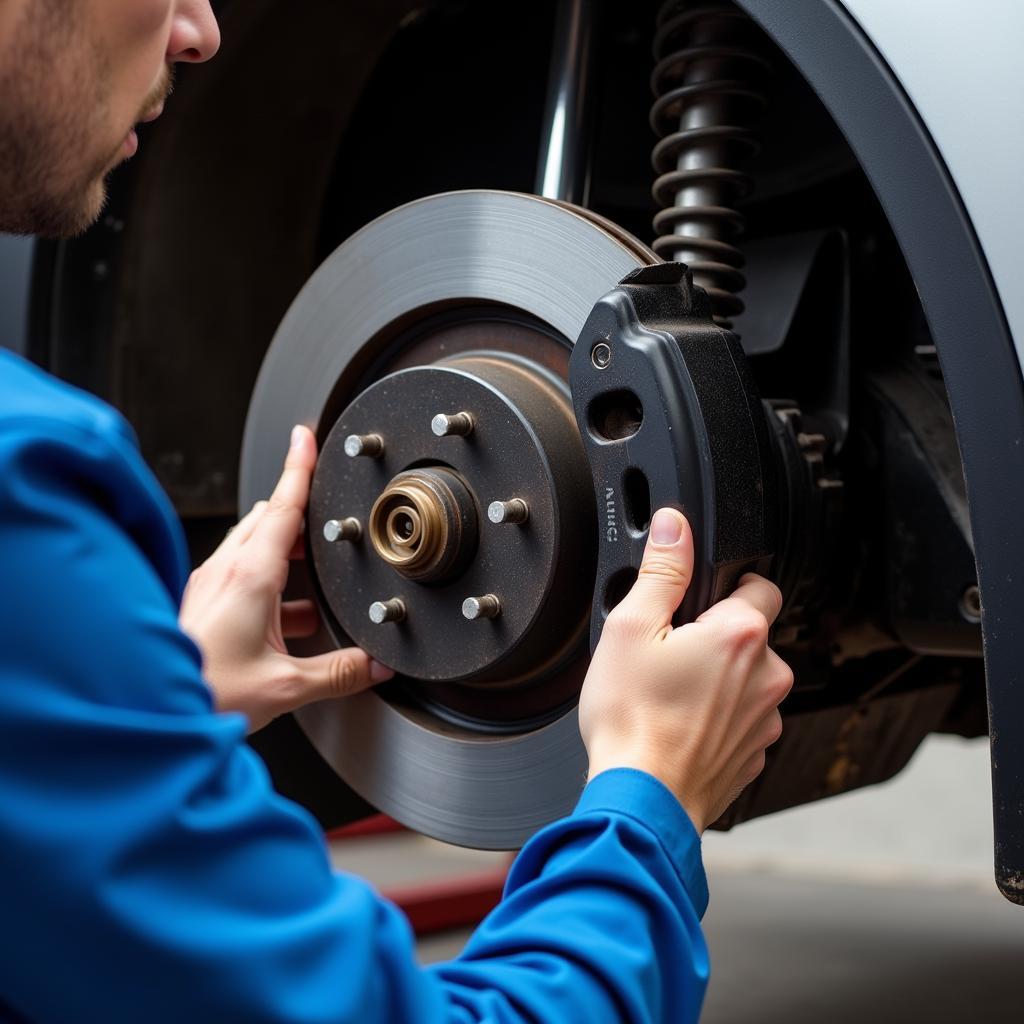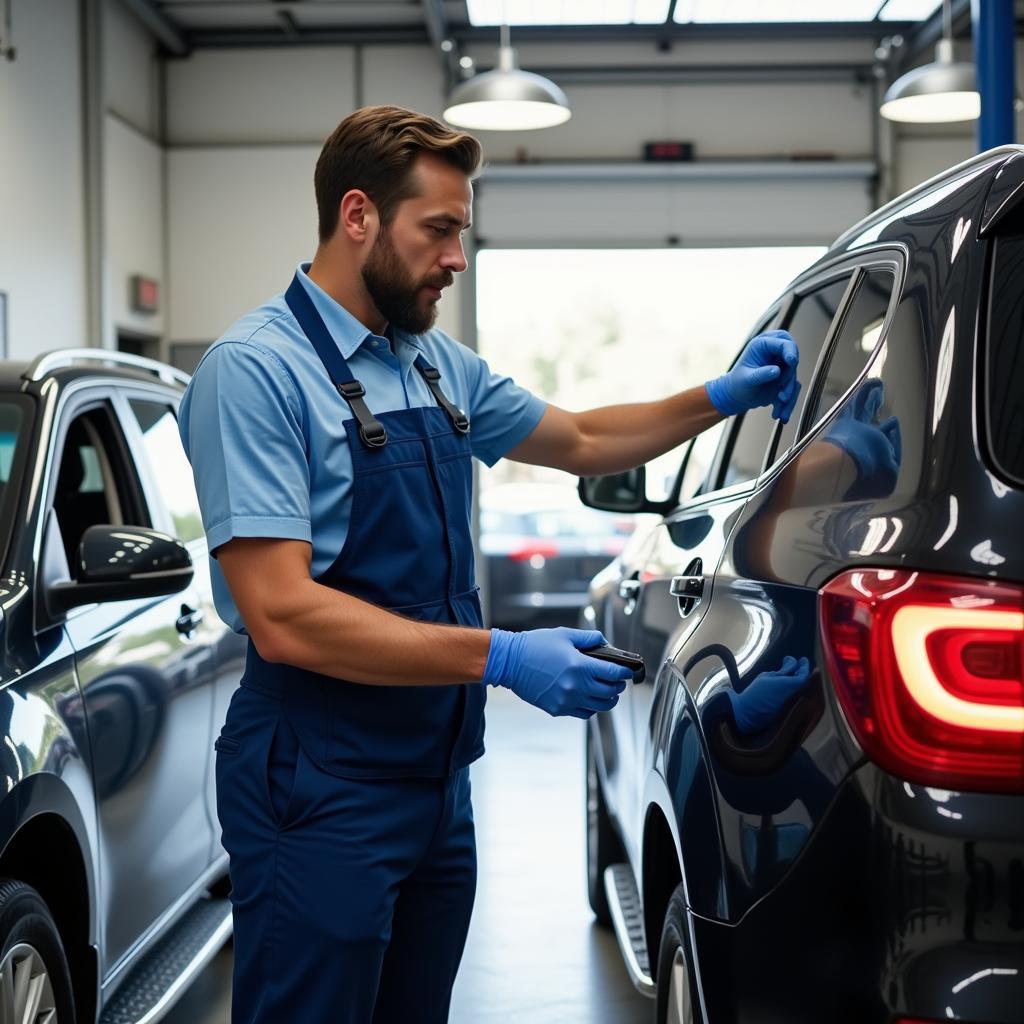What to Do for a Car Service: Your Complete Guide
Taking your car in for service can feel like a chore, but it’s essential for keeping your vehicle running smoothly and safely for years to come. But what exactly does “car service” entail, and how do you know what your car needs? This comprehensive guide will answer all your questions about What To Do For A Car Service.
Understanding Car Service Intervals
“Car service” is a broad term that encompasses a range of maintenance and repair tasks. To make things easier, car manufacturers provide recommended service schedules in your owner’s manual. These schedules outline what needs to be checked, inspected, or replaced at specific mileage or time intervals.
Generally, car service falls into two categories:
-
Minor Service: Performed every 6,000-10,000 miles or 6-12 months, this service usually includes an oil and filter change, tire rotation, fluid top-ups, and a general inspection of brakes, lights, and other essential components.
-
Major Service: Performed every 30,000-60,000 miles or 2-3 years, this more comprehensive service includes everything in a minor service plus inspections and replacements of parts like spark plugs, air filters, fuel filters, and brake fluid.
It’s crucial to remember that these are just guidelines. Your driving conditions, driving style, and the age of your car can all impact how often it needs servicing.
Beyond the Basics: Additional Car Service Tasks
While the service schedule provides a good framework, some additional tasks might be necessary depending on your car’s age, mileage, and driving conditions:
-
Timing Belt/Chain Replacement: This crucial component ensures your engine’s valves operate correctly. Consult your owner’s manual for the recommended replacement interval.
-
Coolant Flush: Over time, coolant can become acidic and lose its effectiveness. It’s generally recommended to flush and replace your coolant every 24,000-36,000 miles.
-
Transmission Fluid Change: Like engine oil, transmission fluid degrades over time. Check your owner’s manual for the recommended service interval.
-
Brake Pad/Rotor Replacement: Worn brake pads and rotors can significantly impact braking performance and safety. Have them inspected regularly, especially if you hear any squeaking or grinding noises.
 Car Brake System Inspection
Car Brake System Inspection
- Battery Testing: Car batteries have a limited lifespan. It’s a good idea to have your battery tested every couple of years, especially as it gets older.
Choosing the Right Car Service Provider
Entrusting your car to a qualified and trustworthy mechanic is crucial for a positive car service experience. Here are some tips for choosing the right provider:
-
Ask for Recommendations: Word-of-mouth referrals from friends, family, and online reviews can provide valuable insights.
-
Check for Certifications: Look for mechanics certified by reputable organizations like ASE (National Institute for Automotive Service Excellence).
-
Consider Specialties: Some mechanics specialize in specific makes or models, which can be beneficial for complex repairs or maintenance on newer vehicles.
-
Inquire About Warranties: Reputable service providers typically offer warranties on their work, giving you peace of mind.
-
Communicate Clearly: Before any work begins, clearly communicate your car’s issues, service history, and any concerns you might have.
Conclusion
Regular car service is the key to a safe, reliable, and enjoyable driving experience. By understanding what your car needs and choosing a trustworthy service provider, you can ensure your vehicle stays in top condition for miles to come. Remember to consult your owner’s manual for specific service recommendations and don’t hesitate to ask your mechanic any questions you may have. Now that you know what to do for a car service, schedule an appointment today and keep your car running smoothly!
FAQs
1. How often should I get my oil changed?
It’s generally recommended to change your oil every 3,000 miles or 3 months for conventional oil, or every 5,000-7,500 miles or 6-12 months for synthetic oil. However, always refer to your owner’s manual for the most accurate information for your specific car model.
2. What happens if I delay car service?
Delaying car service can lead to more significant and costly repairs down the road. It can also decrease your car’s performance, fuel efficiency, and safety.
3. Can I service my car myself?
While some basic maintenance tasks can be performed at home, it’s generally recommended to have a professional mechanic handle more complex repairs and maintenance.
4. How much does a car service cost?
The cost of car service can vary significantly depending on the type of service, your car’s make and model, and the service provider you choose. It’s always a good idea to get a quote beforehand.
5. What should I look for in a car service invoice?
A detailed invoice should include a breakdown of all parts and labor costs, the date of service, your car’s mileage, and any warranties offered.
Need Help with Car Service?
Get in touch with us! We’re here to answer all your car service questions and help you find a reliable and trustworthy mechanic in your area. Contact us via WhatsApp: +1(641)206-8880, or Email: [email protected]. Our customer support team is available 24/7 to assist you.

